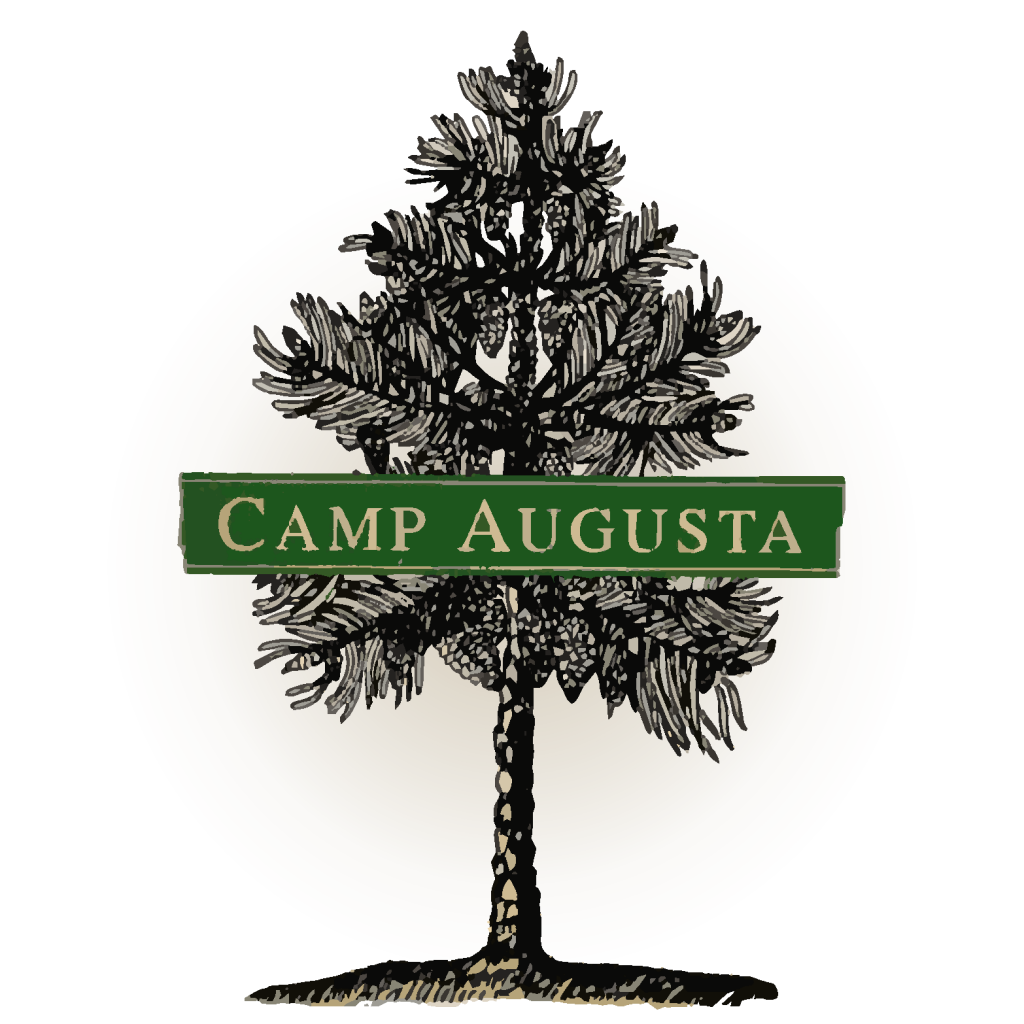A Day at Camp
A Typical Day At Camp:
Six Reasons to Attend for Two Weeks
(1) Enhanced personal development
A longer camp experience offers greater social, emotional, cognitive, and character benefits. You can think of it like the sun and rain with flowers . . . a little definitely helps, but more in the right proportions is better. Camp Augusta aims to be that nurturing environment where children can flourish and bloom.
(2) Deeper friendships
One benefit of living up at camp is being here when Camp Augusta alumni drop by to see the place and share stories. Without fail, they come up in pairs or small groups, with their camp friends. During summer camp, the staff and kids alike comment on how much better people get to know one another in the longer sessions. Two-week sessions offer a slower pace, deeper connections, and richer memories.
(3) Different programming
The weekend offers special programming that doesn’t happen in one-week sessions. There is a special, large game/adventure. Campers get to experience a super massive adventure with rich plots, deep and close characters, wonderful props, and be right in the middle of the action. Special Playstations (not Sony), teambuilding, later wakeups, Giants-Wizards-Elves, numerous special events, a day-time “evening program,” and special cabin time for games and bonding also characterize two-week sessions. Finally, numerous clinics not offered during a one-week session are available for campers to sample or specialize in the second week.
(4) More clinic choices
Instead of 20 clinic choices, campers have 40+. With greater clinic time, campers can experiment with more clinics; we offer scores of different clinics in a two-week session, unavailable in a one-week session.
(5) Greater skill levels
Campers have the option to specialize in more clinics, and/or go deeper with one or two. In two weeks, campers can advance to the higher levels in clinics such as archery, equestrian, climbing, or mountain boarding, which is rarely possible in just a week. There is also the opportunity to develop more skill in clinics such as arts and crafts, since offerings often change with the weeks.
(6) Access to other opportunities
- In a week, campers develop a mental connection to camp; in two weeks, a heart connection develops. Years later, it will be the heart connection that is meaningful.
- The philosophies of Camp Augusta have an opportunity to go beyond scratching the surface.
- The overnight backpacking trip is only available in two-week sessions.
- The off-site rock climbing trip is also only available in two-week sessions.
- Connection with the staff in both directions — relationships form that go beyond the forming stage, and influence in both directions is far more likely. Campers build relationships with instructors, and counselors go beyond being present and chatable, to being friends. Parent letters are longer, as there is more to share.
- Although open to any camper, our leadership programs and junior counselor programs have almost exclusively campers who have come to two-week sessions. Connection.
- In a week, campers treat the experience like Disneyland, trying things out and then moving on. It’s a blast, not a build.
- The full life of modern children can start to become full in other ways . . . slowing down, rich and diverse relationships, and skills and experiences unavailable anywhere else.
- Work on relationships and themselves, instead of shrugging shoulders and letting things ride. Campers are far less interested in personal growth challenges in a one-week session. Campers are also more likely to see themselves and others through new eyes.
- Time without technology — a week is a small taste; two weeks is an understanding that will stay with them for the rest of their lives.
- Connection with nature — becomes normal, and more deeply appreciated. In a single week, nature can remain a thing instead of a feeling/experience.
Bonus: Better Value
$60 less PER DAY than a one-week session. 13 days . . . adds up!
Are YOU Ready for your child to go to camp!?
Most summer camps are in the Northeast of the United States. There, children go to camp for 3+ weeks. The vast majority of camps similar to Camp Augusta have 3, 4, or 7 week sessions, and they have cabins full of 8-year-old children. Independence and self-confidence away from the family are key developmental milestones. Caring and devoted parents can have the best of intentions, but undesirable side effects too.
Certainly, not every young child is ready, yet the overwhelming majority of 8+ years olds are capable. Below are some points to help you. 🙂
Is your child ready?
-
- Has your child spent a couple nights away from family before
- Is your child comfortable camping out, and has no fear of the dark
- Is your child capable of taking care of all personal hygiene without significant complaint
- Is your child able to eat a varied diet
- Is your child fine being in varied groups (every clinic activity is a different group of children)
- Are safety and instructional verbal instructions processed readily
- Is your child excited about coming to Camp Augusta, and is that excitement long-lasting and with a balanced understanding of camp life
Outside of camp, children almost never have the opportunity of spending two weeks away from their parents in their entire developing years.
And, at Camp Augusta, the environment provides an experience that is unavailable to parents themselves at any price.
Michael Thompson, Ph.D., author of numerous books about childhood and development wrote this article about the value of a camp experience.


